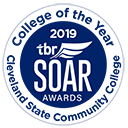Risk Management
Risk Management Specialists
13-2099.02
Median wages
$56,640
Analyze and manage risk management issues by identifying, measuring, and making decisions on operational or enterprise risks for an organization.
- Document, and ensure communication of, key risks.

- Maintain input or data quality of risk management systems.

- Recommend ways to control or reduce risk.

- Identify key risks and mitigating factors of potential investments, such as asset types and values, legal and ownership structures, professional reputations, customer bases, or industry segments.

- Devise systems and processes to monitor validity of risk modeling outputs.

- Gather risk-related data from internal or external resources.

- Identify and analyze areas of potential risk to the assets, earning capacity, or success of organizations.

- Develop or implement risk-assessment models or methodologies.

- Produce reports or presentations that outline findings, explain risk positions, or recommend changes.

- Plan, and contribute to development of, risk management systems.

- Conduct statistical analyses to quantify risk, using statistical analysis software or econometric models.

- Meet with clients to answer queries on subjects such as risk exposure, market scenarios, or values-at-risk calculations.

- Devise scenario analyses reflecting possible severe market events.

- Develop contingency plans to deal with emergencies.

- Confer with traders to identify and communicate risks associated with specific trading strategies or positions.

- Analyze new legislation to determine impact on risk exposure.

- Track, measure, or report on aspects of market risk for traded issues.

- Review or draft risk disclosures for offer documents.

- Determine potential environmental impacts of new products or processes on long-term growth and profitability.


- Determine potential liability related to the use of more sustainable methods of product packaging, such as biodegradable food containers.


- Evaluate the risks and benefits involved in implementing green building technologies.


- Evaluate the risks related to green investments, such as renewable energy company stocks.

- Analytical or scientific software — Aptech Systems GAUSS; Insightful S-PLUS; SAS
 ; The MathWorks MATLAB
; The MathWorks MATLAB 
- Business intelligence and data analysis software — MicroStrategy
 ; Tableau
; Tableau 

- Data base management system software — Apache Hive
 ; Apache Pig
; Apache Pig 

- Data base user interface and query software — Microsoft Access
 ; Structured query language SQL
; Structured query language SQL 

- Development environment software — Microsoft Visual Basic
 ; Ruby
; Ruby 

- Electronic mail software — Microsoft Outlook


- Enterprise resource planning ERP software
 — Oracle Fusion Applications
— Oracle Fusion Applications  ; SAP
; SAP 

- Graphics or photo imaging software — Microsoft Visio


- Information retrieval or search software — Factiva; S&P Capital IQ; Standard & Poor's Capital IQ Compustat

- Internet browser software — Web browser software

- Object or component oriented development software — C++
 ; Practical extraction and reporting language Perl
; Practical extraction and reporting language Perl  ; R
; R 

- Office suite software — Microsoft Office

- Operating system software — Linux
 ; UNIX
; UNIX 

- Presentation software — Microsoft PowerPoint


- Project management software — Microsoft Project
 ; Microsoft SharePoint
; Microsoft SharePoint  ; Oracle Primavera Enterprise Project Portfolio Management
; Oracle Primavera Enterprise Project Portfolio Management 

- Spreadsheet software — Microsoft Excel


- Word processing software — Microsoft Word
- Reading Comprehension — Understanding written sentences and paragraphs in work related documents.

- Active Listening — Giving full attention to what other people are saying, taking time to understand the points being made, asking questions as appropriate, and not interrupting at inappropriate times.

- Critical Thinking — Using logic and reasoning to identify the strengths and weaknesses of alternative solutions, conclusions or approaches to problems.

- Speaking — Talking to others to convey information effectively.

- Systems Analysis — Determining how a system should work and how changes in conditions, operations, and the environment will affect outcomes.

- Mathematics — Using mathematics to solve problems.

- Systems Evaluation — Identifying measures or indicators of system performance and the actions needed to improve or correct performance, relative to the goals of the system.

- Writing — Communicating effectively in writing as appropriate for the needs of the audience.

- Complex Problem Solving — Identifying complex problems and reviewing related information to develop and evaluate options and implement solutions.

- Judgment and Decision Making — Considering the relative costs and benefits of potential actions to choose the most appropriate one.

- Active Learning — Understanding the implications of new information for both current and future problem-solving and decision-making.

- Monitoring — Monitoring/Assessing performance of yourself, other individuals, or organizations to make improvements or take corrective action.

- Time Management — Managing one's own time and the time of others.

- Coordination — Adjusting actions in relation to others' actions.

- Persuasion — Persuading others to change their minds or behavior.

- Social Perceptiveness — Being aware of others' reactions and understanding why they react as they do.










